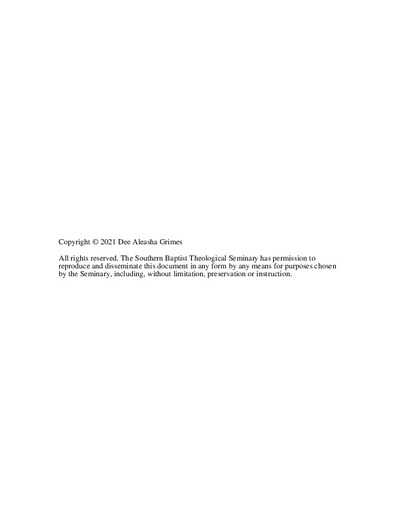| dc.description.abstract | William Perkins (1558–1602) was a significant figure in the post-Reformation Church of England. Contemporary scholars call him the “father of Puritanism” for his pursuit of spiritual reform through preaching and teaching. As a theologian, he is known for his important contribution to the doctrine of predestination, A Golden Chain. He also authored numerous practical works meant to guide Christian life. Scholarship concerning his practical works is less available, thus this dissertation contributes to that lacuna specifically concerning his A Treatise of the Vocations, or Callings of Men, with the Sorts and Kinds of Them, and the Right Use Thereof.In terms of spirituality, Perkins was concerned with how Christians respond to God’s grace in their daily practice. Vocation, or the personal calling, according to Perkins, is “a certain kind of life, ordained and imposed on man by God for the common good.” In other words, a vocation is designed by God, unique to each Christian, and for the good of the family, church, and commonwealth. A result of God’s decree of predestination, the personal calling follows the general calling (salvation). Vocation then is the context in which sanctification occurs, or where spirituality is made evident. This is the essence of Perkins’s spirituality: God’s grace is most evident through a Christian’s obedience in good works in the context of his or her particular calling. This conviction shapes his vision of the Christian life. | en_US |

